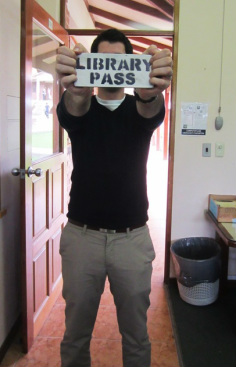
Since arriving, I’ve been pushed to try and make the library more effective and relevant while working within Bolivia’s challenging legal and cultural framework. For instance, Bolivia does not operate many libraries, and of those, virtually none allow you to take books beyond their walls. In some ways this creates a level of reverence for the privileged access to information, which is great so long as the place is also encouraged to be lively and active rather than a hallowed warehouse.
Logistically, importing English books into the country is quite tricky. Between customs charges and the requirement that we use a certified shipper, our total cost for books is increased by approximately 60%. Now every library—public to law firm—works on a tight budget but in a non-profit international school you really start feeling it on the shelves. This has just forced us to be more innovative however, and explore strategies that work best in our situation.
The converse side of the struggle to acquire books is a reluctance to let go of them. A quick browse through our collection will likely turn up several non-fiction titles published pre-1950. Some of these certainly have value but their perspectives on science, computers, and Russia should probably be approached differently than modern publications on these topics. Consequently, I’ve also spent time discarding books that no longer support our school’s curriculum, leisure reading interests, or that have mold. Librarians call this weeding and it can be a wonderful process for increasing space and removing deceptive ideas about which subjects your really have covered.
Lastly, I should mention what a huge asset the internet is for libraries in this environment. Currently, I ‘m negotiating a subscription to an excellent database that I think will be a huge asset to many of our students and teachers. Additionally, I’ve also been able to compile a list of free sites for our students that specifically support their research needs. Having access to reliable websites and databases is so important these days in enabling students to practice advanced searching and in learning to identify reliable information. Yay for free and easy-to-access websites.
 RSS Feed
RSS Feed
